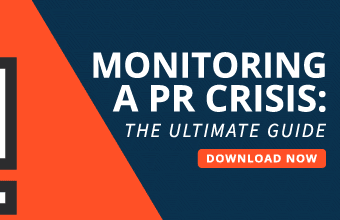Being in a crisis situation is nothing new for Aaron Rodgers, the star quarterback for the Green Bay Packers. But usually the crisis is caused by rushing National Football League lineman attempting to sack him.
Occasionally, Rodgers, arguably the best at his position in the NFL, caused the crisis himself by throwing a pass that was intercepted. Now he is in another crisis of his own making—a PR crisis that already has cost him a longtime sponsorship as a spokesperson for a Wisconsin health care organization because of statements he made on a radio show.
A short recap: Asked on Aug. 26 if he was vaccinated, Rodgers told reporters, “Yeah, I’ve been immunized … There’s guys on the team that haven’t been vaccinated. I think it’s a personal decision. I’m not going to judge those guys.”
After he was diagnosed with COVID-19, it was learned that Rodgers’ answer was either a lie or misleading (depending on your definition of not being truthful). Instead of receiving the approved COVID vaccines, Rodgers received homeopathic treatments because he said, “I have an allergy to an ingredient that is in the mRNA vaccines. So, on the CDC’s own website it says, ‘should you have an allergy to any of these ingredients you should not get one of the mRNA vaccines. So those two were out already.” … “My desire to immunize myself what was best for my body…” “I’m not an anti-vaxx, flat-earther. I have an allergy to an ingredient that’s in the mRNA vaccines. I found a longterm immunization protocol to protect myself & I’m very proud of the research that went into that.”
Instead of limiting his response to the above, which might have cooled down the situation, Rodgers then insisted that he did not lie and gave various explanations for his decision not to be vaccinated, saying that he’s a” critical thinker,” doesn’t believe in giving in to “woke culture,” and said there’s a “witch hunt” in the NFL regarding player’s vaccination status.
Rodgers, the NFL’s reigning Most Valuable Player, broke enough PR rules when trying to justify his stance to fill a wing of the Library of Congress:
- Situation: While not telling a direct lie when he was asked about his vaccination status at his initial press conference, his words definitely conveyed that he had been inoculated with the approved vaccines. Lesson to be learned: Never mislead the media. History proves that eventually the truth will be revealed.
- Situation: When answering a reporter’s question, Rodger’s should have responded with a short reply without being expansive (as reporters love). Lesson to be learned: Rodgers opened up Pandora’s Box by being expansive and delving into issue that had nothing to do with his vaccination status.
- Situation: When selecting a spokesperson to answer questions during a PR crisis, the top-ranking executive is not always the best choice, as research from the Boeing, Wells Fargo and BP’s Deepwater Horizon oil spill, and other crises, will prove. Lesson to be learned: In Rodger’s case, after his initial statement explaining his reasoning not to be vaccinated with approved vaccines, he should have had an experienced spokesperson reply to follow-up questions – perhaps a PR rep from the Green Bay Packers.
- Situation: During a crisis situation, PR practitioners should consider utilizing what I call the “once is enough” strategy. It is not written in stone that a client in crisis must respond to media questions. Lesson to be learned: In Rodger’s situation, if he believed that he had to respond there were other methods he could have used – twitting an answer, asking the Green Bay Packers to post his answers on the team’s website, asking reporters to submit questions via email, as often happens with political reporters, or having a spokesperson answer for him. By trying to publicly justify his vaccine decision, he inflamed the situation.
- Situation: Rodgers said on a radio show that an NFL doctor told him “it’s impossible for a vaccinated person to get COVID or spread COVID.” “No doctor from the league or the joint NFL-NFLPA infectious disease consultants communicated with the player,” the NFL said. “If they had, they certainly would have never said anything like that.” Lesson to be learned: Making a statement that is refuted by someone adds to the negative impression of the person who made the statement.
The important lessons to remember during any PR crisis situation
- During a PR crisis, do not expect your media friends to play down the crisis. Editors are watching the reporters.
- Never lie or mislead the media. If you are asked a question that you don’t want to answer, say something like, “I’ll get back to you on that.” And always do so after you have had time to craft a response that helps your client.
- Never say anything that is “off the record.” If you don’t want the comment to appear in a story, don’t say it.
- Never rush to make a statement until at least preliminary facts are learned. Better to say, “We’re looking into the situation and will get back to you when we have facts to report.”
- Always clear any statement to the media with the company’s attorney.
- Have others in your agency with more experience than you have help out during a crisis situation.
- There is no one size fits all solution to a crisis. Every crisis needs original thinking.
- And most important: Think before you act!
Image source: clutchpoints.com








